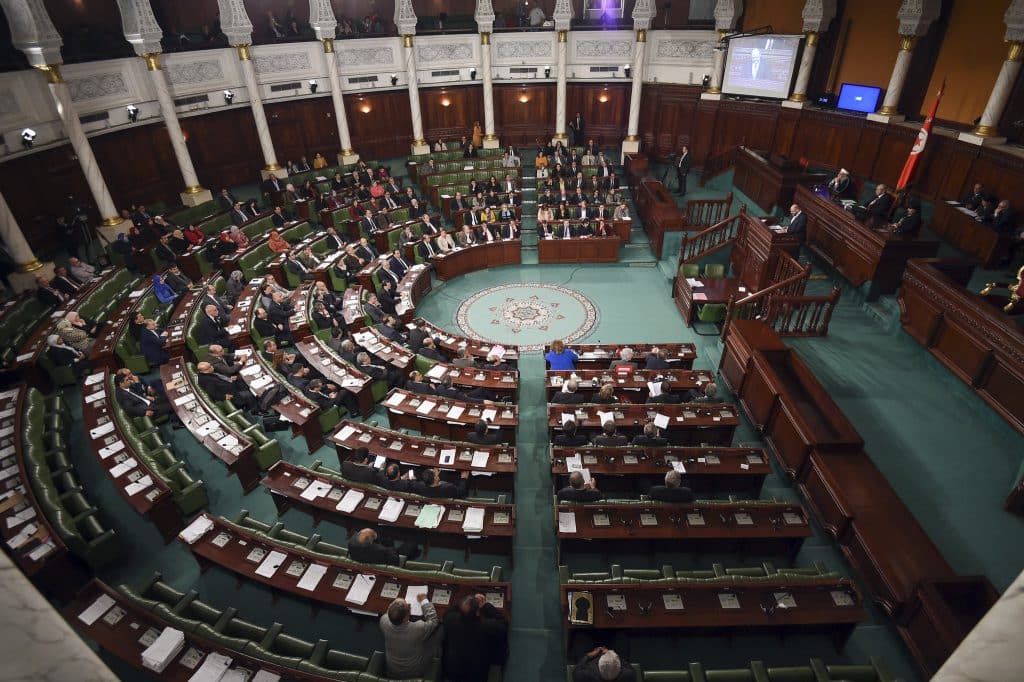Political paralysis makes Tunisia grind to a halt - what is the way up?
It is not the first time, and probably not the last. Tunisia is politically paralysed. The current stalemate between the president and the prime minister continues without an independent referee to give a decisive answer. Meanwhile, a fragmented and politicised parliament is causing confidence in politics to fall, young people in particular are turning away and voters are flocking to the flanks. What will it take to move the country forward again?
Stalemate between president and prime minister
In late January, Prime Minister Mechichi announced a cabinet reshuffle. Eleven ministers with technocratic backgrounds were replaced by party political figures. Not because the ministers were underperforming, but because the power blocs on which the government relies, the moderate Islamist Ennahda and the populist Qalb Tounes, demanded more influence. This, in his view unnecessary change, upset President Saied. Many of the outgoing ministers had been personally selected by him.
More importantly, four of the new ministers have a whiff of corruption hanging around them. A no-go for the president since it was precisely Mechichi who became prime minister after alleged corruption allegations against his predecessor. President Saied therefore refused to swear in the new cabinet with an official ceremony. It is unclear whether the president also has to approve a new cabinet. Saied says yes, Mechichi says no. Attempts to come closer together failed and supporters of both camps have been holding large demonstrations as a show of muscle ever since.
Solutions abound, but all based on personal gain
You would expect something to be devised in the 2014 constitution to give a ruling. A referee who can independently judge who is right and test it against the constitution. And there is. No less than a 12-member constitutional court should give a decisive verdict in cases like this. Only, there has been a struggle for years over who should take a seat as a judge. The three vacancies should be filled by parliament, but because of the fragmentation and polarisation in the parliament this has still not been achieved. Therefore, the court cannot function.
Three possible solutions are currently being discussed in Tunisia. First, the above option: ensuring that the constitutional court can function fully. In addition, calls for new elections are also growing stronger. A new mandate could strengthen the position of a new government. Finally, the option that seems the most obvious for those involved: a new national dialogue with political and civil society representatives. Not only the much-needed economic reforms could then be discussed, but also the choice of system. Tunisia would then have to make a 'real' choice between a presidential or a parliamentary system. Important players are sympathetic to this, but are also immediately opposed to each other in the process. President Saied - who is not affiliated with any political party - would like to expand his power, while parliamentary president and Ennahda leader Ghannouchi sees more benefit in a parliamentary democracy with an increased electoral threshold. Each is thus going for his own gain.
Beyond division and self-interest
Let that be the very reason why none of the options will succeed without that focus on self-interest and polarisation not being fought. It sounds simple, but political parties and politicians need to start realising again who they represent and who they are there for. The fight should be about policy choices and not puppets. Parties are beset by squabbles that have nothing to do with the issues they were elected for. The debate is more about ministerial posts than a sound economic recovery plan to tackle unemployment. Here, polarisation is also deliberately used for its own benefit. Being set off against the other means more colour around the cheeks, but Tunisia is spiralling into a situation where the setting off has to become more extreme to impress. Not only do politicians call each other rotten fish, but riots are a new recurring phenomenon. A sweeping sign.
It has been more than a decade since the Arab Spring began in Tunisia. A wave of protest movements spread across the region, but unfortunately could not live up to the hopeful expectations. In 2019, we saw new popular uprisings in Algeria, Sudan, Iraq and Lebanon. While regimes in these countries were temporarily able to contain the second wave, it is logical to expect third, fourth and fifth waves, or more, until the root causes of the uprisings are addressed: good governance and higher standards of living. As long as the Tunisian government fails to provide both, there is no way out of the crisis. It is time for politicians to step over their own shadows.
By: Jaron Lipline
Photo: Flickr




